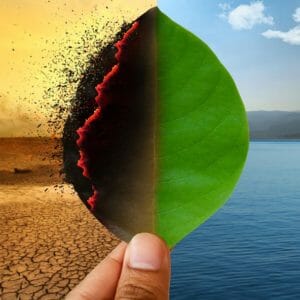Despite the near universal consensus confirming the phenomenon of climate change, climate skepticism still poses a significant barrier to developing more environmentally conscious policies. One particular segment of the population — the Christian right — is the most skeptical major religious group in America regarding climate change. However, the reasons behind their skepticism are not what one would expect.
Robin Veldman, an interdisciplinary environmental studies scholar from Texas A&M who conducted research on evangelical attitudes toward climate change, explains:
“I found that rather than end-time beliefs, it was evangelicals’ sense of embattlement with secular culture that shaped their attitudes toward the environment most powerfully. Most people think evangelicals’ lower levels of environmental concern is a matter of politics or theology. I argue that it’s better understood as an outcome of history and identity.”
As climate change continues to garner more public attention, it becomes all the more important to understand the perspectives of those who remain skeptical. That is why Arizona State University’s School of Historical, Philosophical and Religious Studies collaborated with the Center for the Study of Religion and Conflict to host the event “Who, What, Where, Why and When? Understanding the Religious and Political Origins of Evangelical Climate Change Skepticism.” The event, led by Robin Veldman on February 6 on the ASU Tempe campus, explored the factors shaping evangelical understandings of and attitudes toward climate change.
“In discussions about environmental issues, religion often gets sidelined or treated in simplistic terms,” Veldman said. “I show why it’s important to pay attention to religion and to do so in a theoretically sophisticated manner.”
The event is part of a new initiative by ASU that is focused on exploring new ways to address climate change. “Apocalypticism, Climate Change and the American Imagination” is a partnership between the Center for the Study of Religion and Conflict, the Global Futures Laboratory and the Narrative Storytelling Initiative. It examines the role apocalyptic thinking plays in shaping Americans’ imaginings and experiences of disruptive social change.
Evan Berry, a senior sustainability scholar in the Julie Ann Wrigley Global Institute of Sustainability and an assistant professor of environmental humanities at the School of Historical, Philosophical and Religious Studies, says: “We need ways of speaking about climate change that attend to the experiences of different communities with nuance and sophistication, stories that enable action and imagine desirable futures. Both Dr. Veldman’s work and the scholarship being produced by the Apocalypticism, Climate Change, and the American Imagination initiative do this.”
